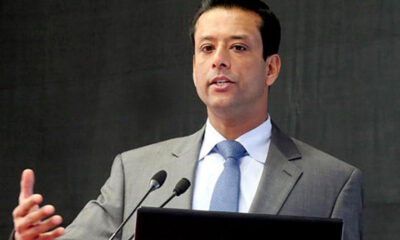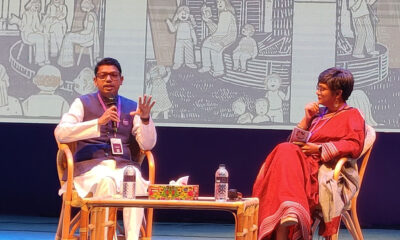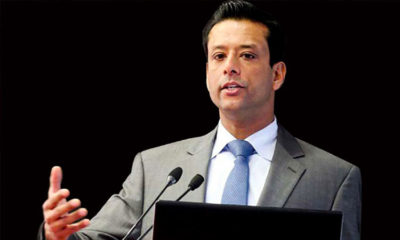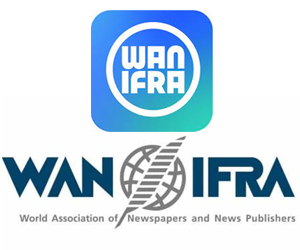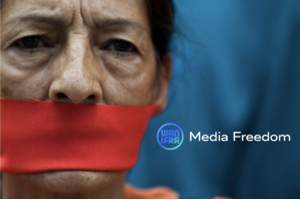Bangladesh
Zunaid Ahmed Palak, a tale of an inspiring leader
Published
4 years agoon
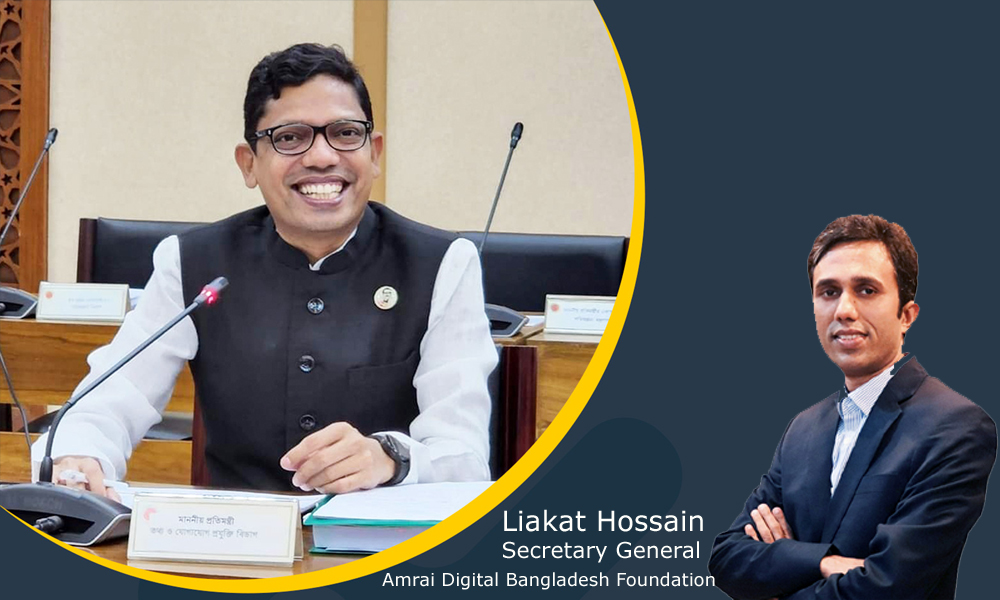
By Liakat Hossain
Today is the birthday of the most influential young leader, icon of youth and key person for implementing digital Bangladesh vision, designed by Architect of Digital Bangladesh Mr. Sajeeb Wazed Joy. He followed his father’s footsteps in politics and became a member of the Bangladesh Awami League. He has been involved in active politics of Bangladesh for the last 25 years.
Digital Bangladesh is a dream name. This dream was born amidst many sarcasm and criticism. That dream is now a reality. The concept of ‘Digital Bangladesh’ is a novel approach to keeping up with the rest of the world. People now have access to information and technology resources as a result of the implementation. Through online, we can obtain daily services delivered to our homes and we now access health and medical services, education, offices, courts, banks, political meetings, and conferences.
Mr. Zunaid Ahmed Palak is a key resource to implement of Digital Bangladesh vision. Under his leadership, ICT Ministry is working tirelessly to implement human resource development, internet connectivity, e-governance and IT industry promotion, the four pillars of Digital Bangladesh. Moreover, the freelancing and e-commerce sector gets priority to boost employment. All initiatives taken by the ICT Ministry got appreciation from every citizens of the country.
The contribution of Mr. Palak in strengthening the hand of Mr. Sajib Wazed Joy to make Bangladesh more technology dependent is undeniable. Under his leadership, ICT Ministry has taken many notable initiatives such as building nation-wide High-tech Parks, Sheikh Kamal IT and Incubation Center, Sheikh Russel Digital labs, 4 tier National Data Center, EDC and many more. Besides these, ICT ministry initiates many skill development projects like: Learning and Earning Development project (LEDP), She Power project, Mobile App and Game Development Project, EDGE etc. Through these projects, industry’s resource gap will be minimized and these skilled resources will generate foreign revenue it also reduces unemployment.
During the Covid-19 pandemic, ICT Ministry also initiated several emergency services including telemedicine services, emergency helpline services through 999, 333, 106, 109 and 1090.
Approximately 18,000 government offices across the country were connected to the internet via dedicated high-speed connections, and one of the world’s largest web portals with 25,000 government websites was developed under his guidance. Bangladesh also received the ITU’s Sustainable Development Award, the WSIS Plus 10 Award, and the WITSA Public Service Excellence Award.
For his magnificent leadership, he was nominated as “Young Global Leader” in 2016 by the World Economic Forum. In 2018, he was appeared on the list of “World’s 100 Most Influential People in Digital Government” published by Apolitical, a London-based international organization.
Mr. Zunaid Ahmed Palak is representing the youth in the politics of Bangladesh. He can understand the needs and dreams of the youth. On the other hand, since Palak is their contemporary, young men and women are inspired by his activities like workshops, seminars, speeches.
Information technology is the main driving force of Digital Bangladesh. People of Bangladesh dreamt for a better life with hope, dream and aspiration. Our honorable Prime Minister Sheikh Hasina is working restlessly to fulfil the dream of Sonar Bangla of the Father of the Nation Bangabandhu Sheikh Mujibur Rahman.
In his birthday, I wish may God bless him with good health and long life.
Author Name: Liakat Hossain
Secretary General of Amrai Digital Bangladesh Foundation,
CEO of Babylon Resources Ltd. & Newgen Technology Ltd.
Bangladesh
Bangladesh’s Press at a Crossroads: Between Promises of Reform and the Shadows of Repression
Published
5 months agoon
August 14, 2025
By Md Mojahidul Islam Dheow
Bangladesh’s press is at a crossroads. A year after the mass uprising of 2024 promised a fresh dawn for the country’s long-troubled media, journalists still move under a heavy cloud of political, institutional, and psychological pressure. Across the nation, more than 250 cases have been filed against reporters in the last 12 months—not all for crimes of substance. Some are clear attempts to stifle critical reporting; others stem from something as ordinary as a social media post. The message is unmistakable: those who challenge authority face serious consequences.
Legal reform has offered a glimmer of hope with the newly debated Section 173A of the CrPC, 1898, which allows an accused to be discharged during investigation if a high-ranking police supervisor finds insufficient evidence. But the question remains: will this tool be used impartially—or selectively, to shield the powerful and punish dissenters?
The dangers facing journalists were made starkly clear on August 7, when Asaduzzaman Tuhin was killed while on duty. Just a day earlier, Anwar Hossain was assaulted while reporting on extortion at a Gazipur CNG auto-rickshaw stand. These incidents are not isolated—they are part of a pattern of violence and intimidation aimed at silencing the press.
Even the newly crafted Cyber Security Ordinance (CSO) 2025—intended to replace repressive predecessors like the Digital Security Act (DSA) 2018 and the Cyber Security Act (CSA) 2023—retains troubling elements. While some contentious sections have been removed, Section 42 still allows the use of repressive tools drawn from the ICT Act 2006, the Evidence Act 1872, and the CrPC. Vague phrases such as “public confusion,” “threats to national security,” and “anti-state acts” remain undefined, enabling broad crackdowns on civil liberties, journalism, and political opposition.
Beyond the legal framework lies a deeper crisis. Corporate influence and editorial compromises have long weakened investigative journalism in Bangladesh. The media’s role as a pillar of democratic accountability has eroded, with many outlets beholden to owners’ political and commercial interests. With no substantial institutional reform since the change in government, the press remains vulnerable to regulatory harassment, licensing obstacles, and punitive taxation whenever coverage strays from the “approved” line.
Two proposed reform measures—the Journalists’ Protection Ordinance 2025 and the National Media Commission Ordinance 2025—once promising, are stalled in bureaucratic limbo. The “one house, one media” policy, intended to prevent individuals or organizations from owning multiple outlets, remains unrealized despite the Media Reform Commission’s advocacy.
Even the Bangladesh Press Council risks becoming yet another instrument of state control unless its mandate is reimagined to prioritize journalist protections. Political divisions within journalist unions and media organizations further weaken any unified stance for press freedom. Ownership patterns skew licensing and content toward vested interests, while dissenting voices are punished through regulatory harassment or punitive audits. Inside newsrooms, self-censorship grows as fear of legal trouble and professional retaliation suppresses candid reporting. Whistleblowers remain silent, and investigative journalism is increasingly replaced by risk-averse coverage.
What Bangladesh needs is a national framework for self-regulation that binds all outlets: an internal editorial code of conduct, a grievance redressal mechanism, anti-harassment policies, and straightforward complaint resolution processes. A transparent, independent media ombudsman should adjudicate defamation claims and public complaints. Only with genuine independence, accountability, and a clear commitment to journalist safety can the industry rebuild trust and integrity.
Beyond reform, there is an urgent need for immediate protection and practical empowerment of reporters in the field. The proposed Journalists’ Rights Protection Ordinance 2025 aims to codify such protections, with penalties of up to five years’ imprisonment and substantial fines for violence against journalists. It would:
(a) defend journalists from violence, threats, and harassment;
(b) shield sources and protect newsroom independence;
(c) guarantee the right to work without fear;
(d) ensure safe reporting environments within media organizations;
(e) safeguard good-faith reporting; and
(f) establish clear complaint, investigation, and trial procedures.
The ordinance mandates that fines can be directed as compensation to the harmed journalist and holds both individuals and, when applicable, organizations accountable for failing to prevent or address abuses.
If implemented effectively, it could mark a turning point. But enforcement requires a judiciary capable of handling cases efficiently and free from political influence. Authorities must be bound by law to protect journalists, safeguard newsroom neutrality, and defend those who publish information in the public interest.
The current moment is pivotal. Real reform demands more than laws on paper—it requires political courage, institutional independence, and a mature democratic culture. Journalists must unite beyond political divides, media owners must shed partisan agendas, and the state must commit to protecting the very people who hold it accountable.
Time is slipping away. Each delay erodes public trust, silences more journalists, and buries more truths. If Bangladesh is to have a democracy worthy of the name, it must build a press that is free, secure, and independent—not as an ornament of democracy, but as its beating heart.
Bangladesh
Investigation: Hasina’s ‘Shoot Directly’ Order and Its Deadly Consequences
Published
6 months agoon
July 25, 2025
On the morning of July 27, 2024, Sheikh Hasina stood silently at the podium of the National Institute of Traumatology and Orthopedic Rehabilitation (NITOR), commonly known as Pongu Hospital, in Dhaka.
For nearly 14 seconds during her eight-minute emotional speech, the former prime minister remained silent. A visible pain marked her face, reflecting the weight of the bloodshed that had occurred since July 16, when police forces fatally shot Abu Sayed in Rangpur with lethal weapons. That day, five more lives were lost amidst violence in Dhaka and Chattogram.
By the time Hasina addressed the crowd at NITOR, the death toll across the last two weeks had reached at least 162, many of whom had been shot with military-grade weapons by state security forces, according to The Daily Star’s investigations.
“I seek justice from my fellow citizens. What crimes have I committed to deserve this?” 77-year-old Hasina asked after visiting some of the injured at the hospital.
“I don’t want any mothers to lose their children like this. I’ve lost my parents; I know the pain… So many lives have been lost, so many families shattered. Who is responsible for all this?…” she began, but then, overcome with emotion, she left the stage in tears, unable to finish her words.
This heartfelt public address sharply contrasts with what was happening behind the scenes. An investigation by The Daily Star reveals that a state-sponsored machinery for mass violence had already been put into motion.
Just nine days earlier, on the evening of July 18, 2024, a phone rang inside the ousted prime minister’s residence, Gonobhaban, and Sheikh Hasina answered. On the line was Sheikh Fazle Noor Taposh, then the mayor of Dhaka South City. What followed was a startling disclosure of a lethal plan.
“We are now doing things differently. We are capturing photos with drones, and sending helicopters to several places,” Hasina told Taposh.
“Wherever they [the state forces] see gatherings, from the sky… I am getting it done from above, already started in several areas… already underway,” she said, while Taposh repeatedly pressed for launching a large-scale arrest campaign.
Bangladesh
WB to provide $250m loan to modernise five public sector functions
Published
7 months agoon
June 15, 2025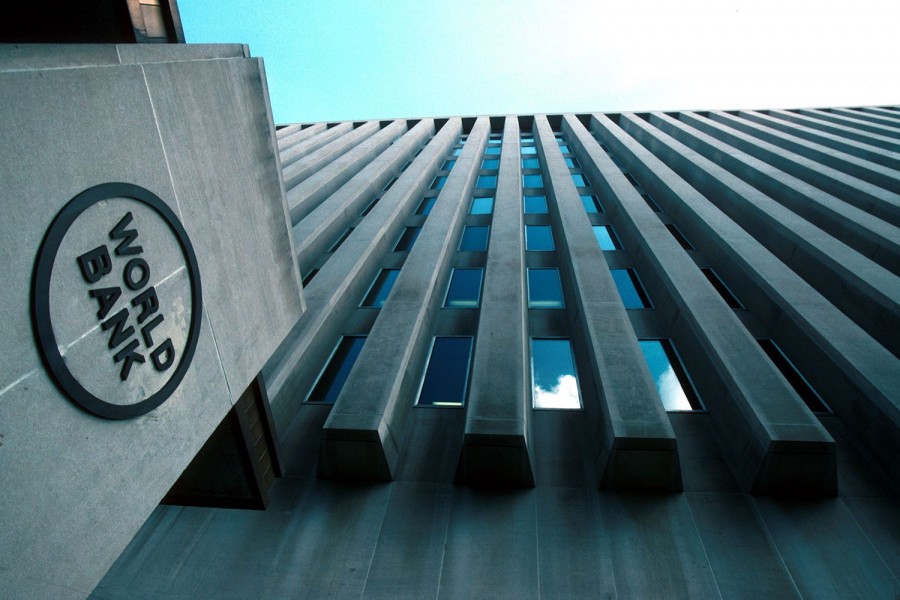
The World Bank (WB) would provide US$250 million funds to facilitate improving transparency, accountability, and efficiency of some key government agencies in Bangladesh.
FE
The WB board on Saturday approved the loan to support the ongoing reform initiatives of the interim government, aimed at modernising crucial public sector functions.
These are essential for improving data transparency, domestic revenue mobilisation, public investment management, public procurement, and financial oversight, according to a statement issued on Saturday.
Under the Strengthening Institutions for Transparency and Accountability (SITA) project, five key government agencies – the Bangladesh Bureau of Statistics (BBS), the National Board of Revenue (NBR), the Planning Division, the Bangladesh Public Procurement Authority (BPPA), and the Office of the Comptroller and Auditor General (CAG) – would reform their operational activities.
The project is expected to streamline operations and improve service delivery within the five agencies and enhance access to reliable public statistics, crucial for transparent and accountable decision-making and policy formulation.
It will help modernise tax administration and increase tax compliance, thereby improving much-needed revenue mobilisation and fiscal sustainability.
The WB loan will also help improve the efficiency and accountability of public spending, ensuring that resources are utilised effectively for the benefit of all citizens.
It will develop a second generation of electronic government procurement (e-GP) and broaden its scope. The project will also help strengthen and digitise public audit.
Gayle Martin, the World Bank’s Interim Country Director for Bangladesh, on Saturday said: “The investment will leverage digitisation of business processes to help improve transparency and reduce corruption, by supporting Bangladesh in modernising public institutions capable of serving an emerging economy.”
This project will help improve the quality and accessibility of public services and thus enhance public trust in government institutions, she added.
According to the statement, the Bangladesh government and the WB are also preparing a development policy credit scheduled for the bank’s board discussion later this month.
Such credit is expected to support transparency and accountability in domestic revenue mobilisation, the banking sector, data production and dissemination.
Souleymane Coulibaly, World Bank Lead Country Economist and Task Team Leader for the project, said: “This project and the proposed development policy credit would be complementary and provide the government both the necessary hardware and software for improving public financial management and public service delivery.”

From Confusion to Clarity: Dheow’s Book Helps Users Master ChatGPT Conversations

Pre-Orders Open for Mojahidul Islam’s Latest Computer Book ‘AI Shikhun, Taka Gunun’

Bangladesh’s Press at a Crossroads: Between Promises of Reform and the Shadows of Repression



